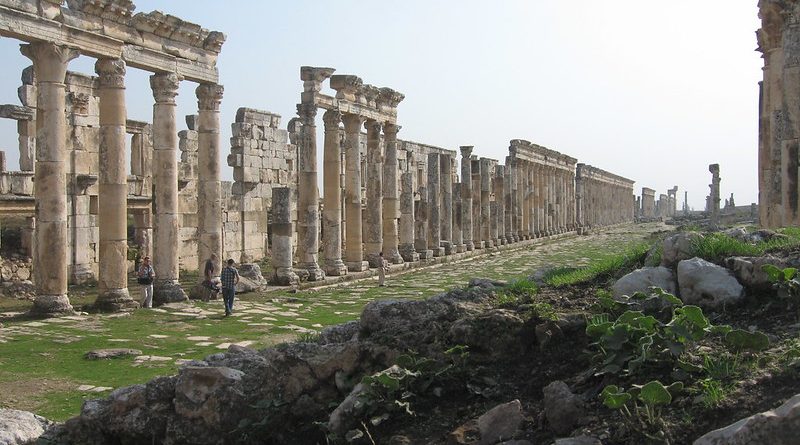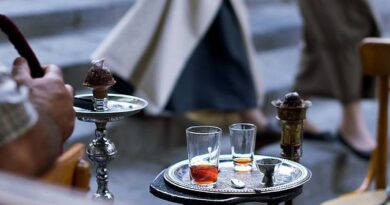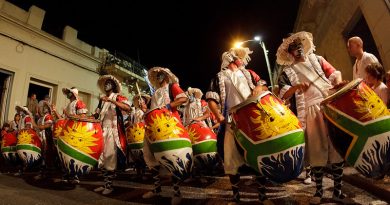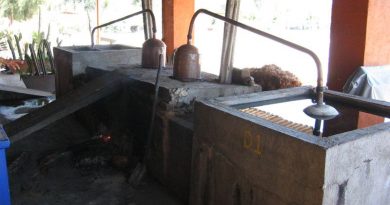Daily Life, Arab Style
Culture Facts
Religions: Muslims, Christians, Jews, Coptics and Druze living in harmony
Dress: From high-heel style to robes like the hijab
Family Life: The warmth of the extended family, a bounty of children and, of course, any excuse for a wedding or celebration
Life in Damascus, Syria
Syrians consider themselves to be at the heart of Arabic culture, they are extremely nationalistic and proud of their beloved Souria. A stroll down most any street in Damascus or the outlying areas, at any time of day, will give you a tremendous feel for family life in Syria. There’s always something going on, no matter what time.
Early morning, you’ll awake with a start from vendors hawking produce or kitchen gadgets for the home. Some of these vendors have horse-drawn carriages with richly ornamented animals, festooned with all manner of decorative beads, woven things or religious amulets. Vendors ride through the streets with canisters of propane cooking gas, for example, beating out an insistent tattoo with a ball peen hammer on the metal canisters. Also delivered to your door is produce, fruits, and labneh (cheese). The latter is found floating around in plastic bins, jiggling in the back of a pickup truck.
In Jeremana, a suburb about 15 minutes south of Damascus, where a large number of Druze live, it’s not uncommon for several houses of family to live within about a 1-3 block area of each other. As Syria has one of the highest birth rates in the Arab world, here, like most suburbs, life is booming. Four-storey concrete apartment buildings, one flat per floor, built by the government adorn the blocks. They’re perfectly adequate dwellings, with several bedrooms, a large salon or sitting room, an enormous kitchen and often a backyard courtyard and several outside porches. Often a family will buy whole buildings, opening up a flat upstairs from the parents when a son or daughter marries and starts their own family. This makes it easy for Syrians to pop out for frequent visits to relatives, drink lots of tea, eat sweet snacks and gossip – a favourite pastime!
Syrians adore large, boisterous family gatherings with lots of food, socialising, dancing and fun. It doesn’t take much of a suggestion for a group of Syrians to “make a party” – then out come the kababs, musical instruments, singing and debke dancing- a sort of line dance popular in the region.
Syrians are very warm-hearted, sentimental people, with close family relationships. Westerners who visit may be uncomfortable at first – the concept of “personal space” is vastly different in Damascas than say, Chicago. People tend to stand closer, sit closer, make more eye contact and kiss both cheeks as a form of greeting – with three kisses, right-left-right, between close friends. Even men commonly walk down the street holding hands, or sit and talk with their arms around one another. This is not to say you will be the victim of unwanted touching, as good manners are extremely important and aahjnabees (foreigners) can usually be recognised.
Dancing the debke
The debke is the national dance of the region; there are different steps for each area. Syrian, Ayssyrian, Palestinian, Jordanian and Lebanese each have their own slightly different step. It’s a dance usually done by a line of men – though women do join in enthusiastically as well – with the first couple of dancers in the line jumping, twirling a white handkerchief and doing a wild improvised dance, based on the simple repeated steps of the rest of the line. If you wish to learn debke, you’ll likely have many opportunities, as it’s a dance that busts out even in Arabic nightclubs located in the States.
You can really learn a lot about Arabic culture simply by going to a Middle Eastern restaurant in your area – as well as get a good feel for the food you will find there. Talk to the restaurant owners, or staff and watch the invitations to “my cousin’s hotel-restaurant-rug shop” begin! It will make your trip that much more fun and personalised.
The Druze People
Syria, Lebanon and Jordan have a large population of Druze. The symbol for Druze is a five-pointed star, with green, red, blue, white and yellow points – you sometimes see these stars on cabs or on the front of businesses. The Druze religion is similar to the American Unitarian faith. The Druze are very secretive, do not attend mosques or pray openly. It’s not possible to become Druze, even by marriage, you cannot “convert”. Druze tend to marry other Druze (often marrying first or second cousins) and then new members are born into the religion. Druze have a fierce history but today live peacefully and freely throughout most of the Arab world.
Family Life
It’s common for natives you meet to immediately inquire if you’re married – and if not, why not? How many children do you have – and if you’re married, why don’t you have lots of children already? Family is extremely important in Syrian culture, children are petted, spoiled and kissed constantly, and are usually extremely well behaved and quiet. It’s rare to see a petulant child throwing a tantrum in public.
Dress and Fashion
The local mode of dress varies wildly depending on where you are. Damascenes who live in the city, dress very stylishly and fashionably. Syrians are usually “dressed up” when they go out into the street. Syrian men are extremely fastidious about their grooming – this translates into hundreds of little barber shops around the city, where all the men seem to get the same neat haircut and a perfectly done clean shave. Facial hair is not especially popular, but you do see many mustaches – with varying degrees of flamboyancy. Men are usually dressed in slacks, shirt and black leather shoes. Leather jackets are sometimes worn even when it’s extremely hot out. Syrian men, in addition to being an extremely handsome lot, are usually dressed and pressed well, although you do see the occasional white socks with dark pants faux pas.
Lebanese women are the fashionistas of the Arab world, turned out in the most stylish of ensembles – often strutting around in impossibly high-heeled boots and shoes, clad in high end designer gear with lots of elaborate makeup. You do see a few women wrapped in the traditional Muslim hijab, but in Lebanon it is very rare. You’ll see that a bit more in Syria and Jordan, which are both more conservative.
Older men wear keffiyahs, the traditional Arab red and white or black and white chequered headscarf, with gellabahs, or robes. In Druze areas, the women will usually be wearing black dresses and sheer white scarves draped over their head. Very old Druze men will wear crisp white shirts, and roomy black harem-type pants with sandals.
Freedom and Religion
Syria, and to a slightly lesser degree, Jordan, has freedom of religion. There are Muslims, Christians, Jews, Coptics, Druze and practically any other religious denomination you can think of living all mixed together in apparent harmony. In Syria, there are Christian churches, synagogues, temples and mosques. You hear the call to prayer, see people praying in the mosques and Christians coming out of churches on Sundays.
Life for Women
Women can drive freely in Syria and Lebanon, and these ladies sure can drive. When crossing the street, a huge black Mercedes may whiz past with only a white headscarf visible behind the wheel, careening down the street.
Women can also live alone here in Damascus, if they wish, as there is no government regulation against women having their own apartment or property. Family pressure to stay at home for both men and women means that singles living alone are still somewhat rare. Women are not singled out in the discouragement of the solo lifestyle, men also live at home until they are married. Whilst there is choice, most choose the bustling family life rather than the solitude of living alone before marrying. After marriage, it’s common to live quite close to one or both sets of parents.
More Information
Syria Online: Syrian Culture
Links to hundreds of articles on aspects of Syrian culture including the Muezzins of Aleppo and religious tolerance.
Guide written by Erika Linden Green-Rafeh




